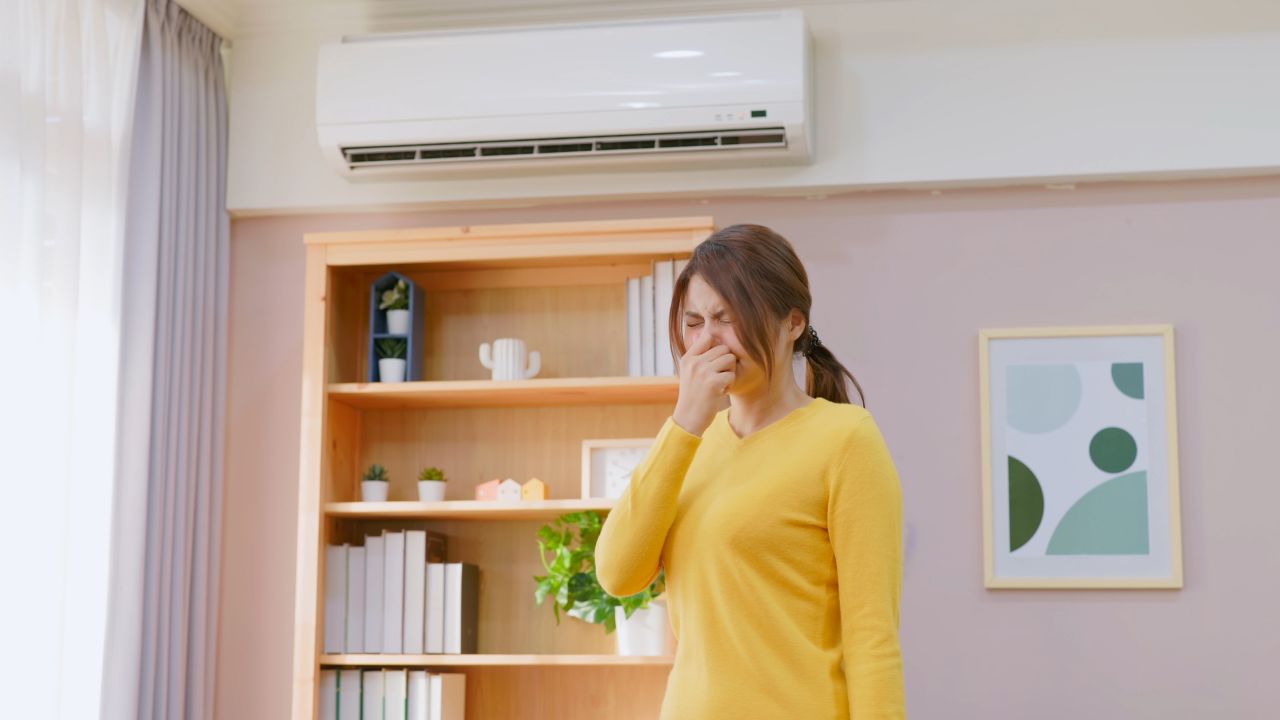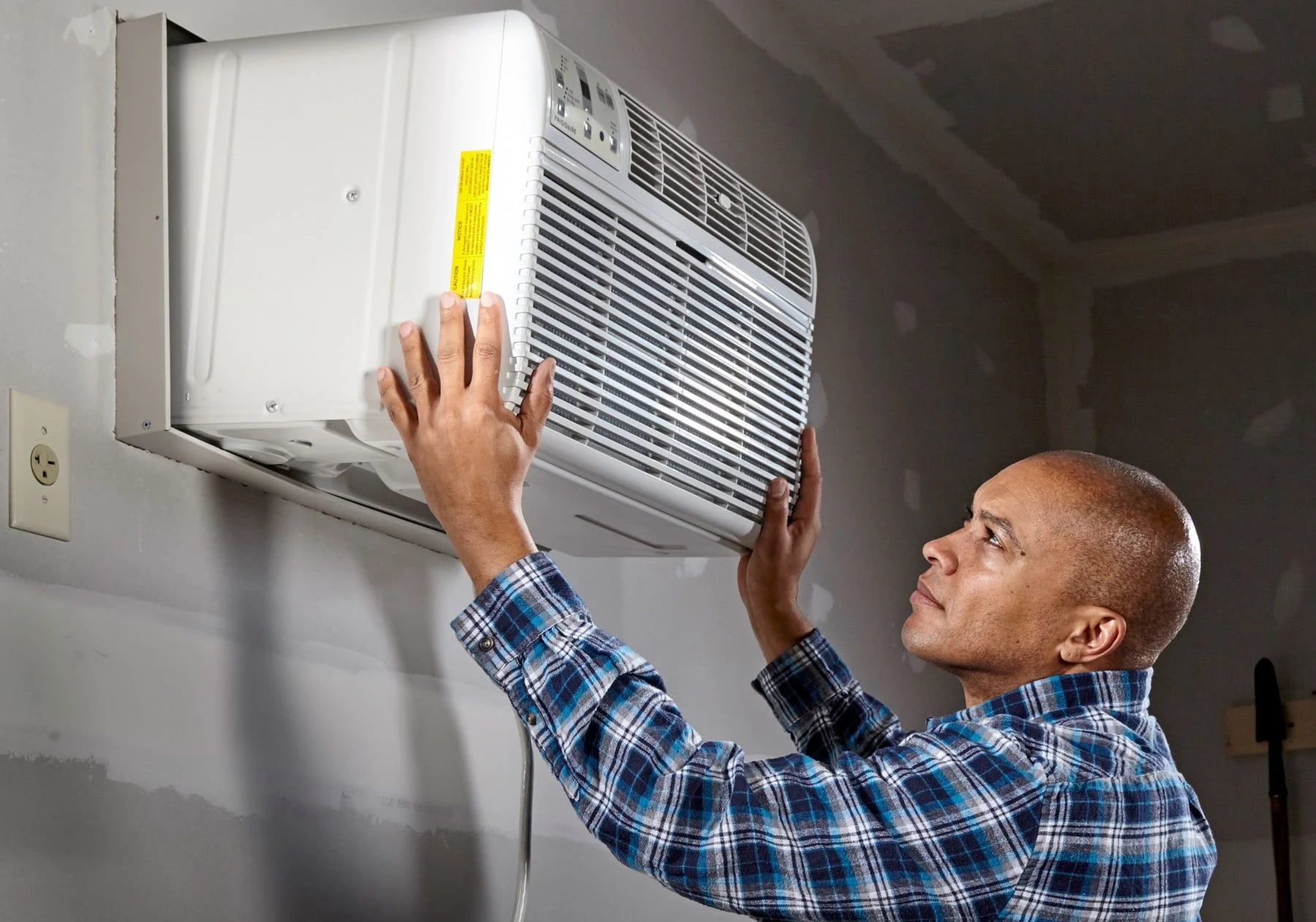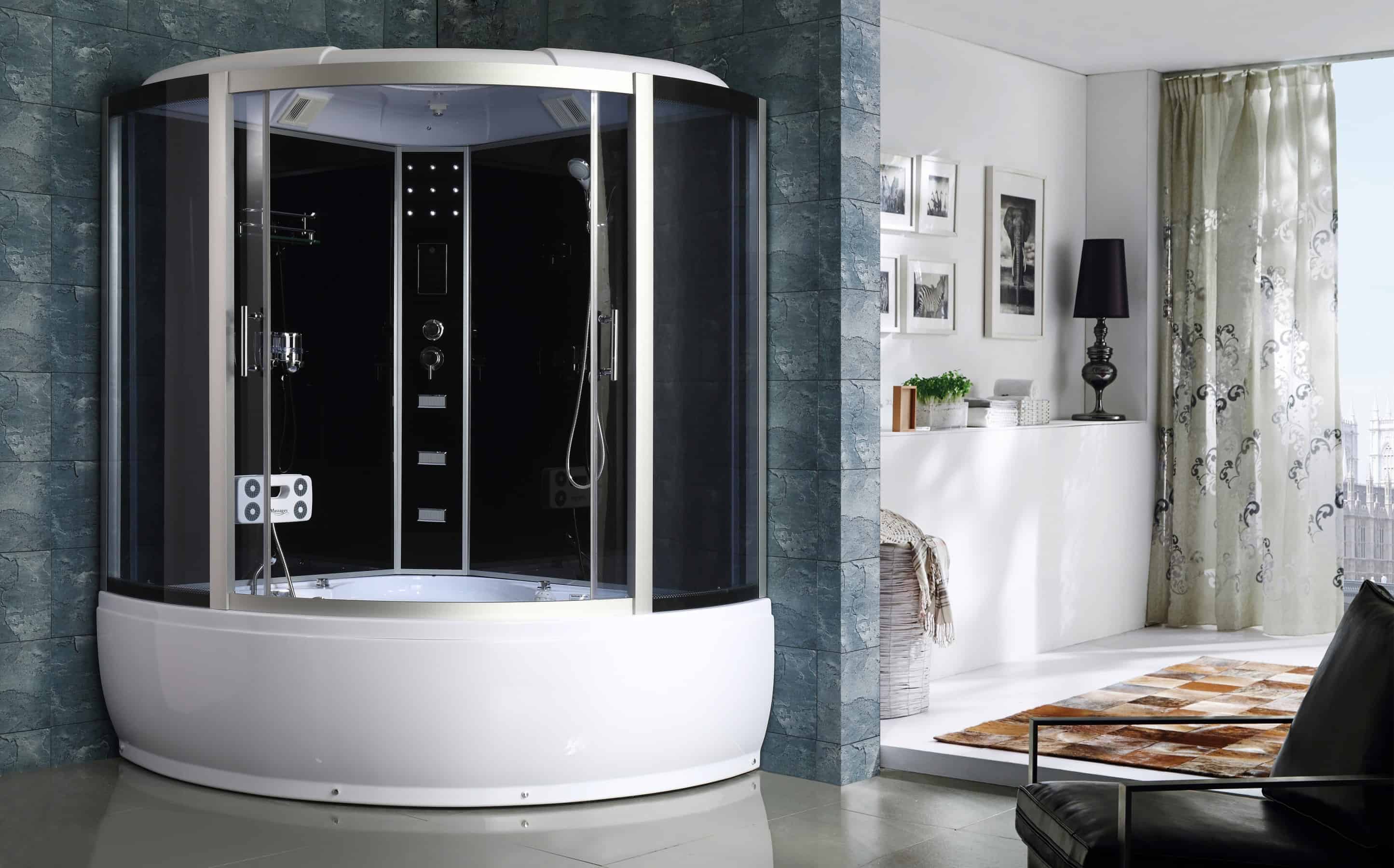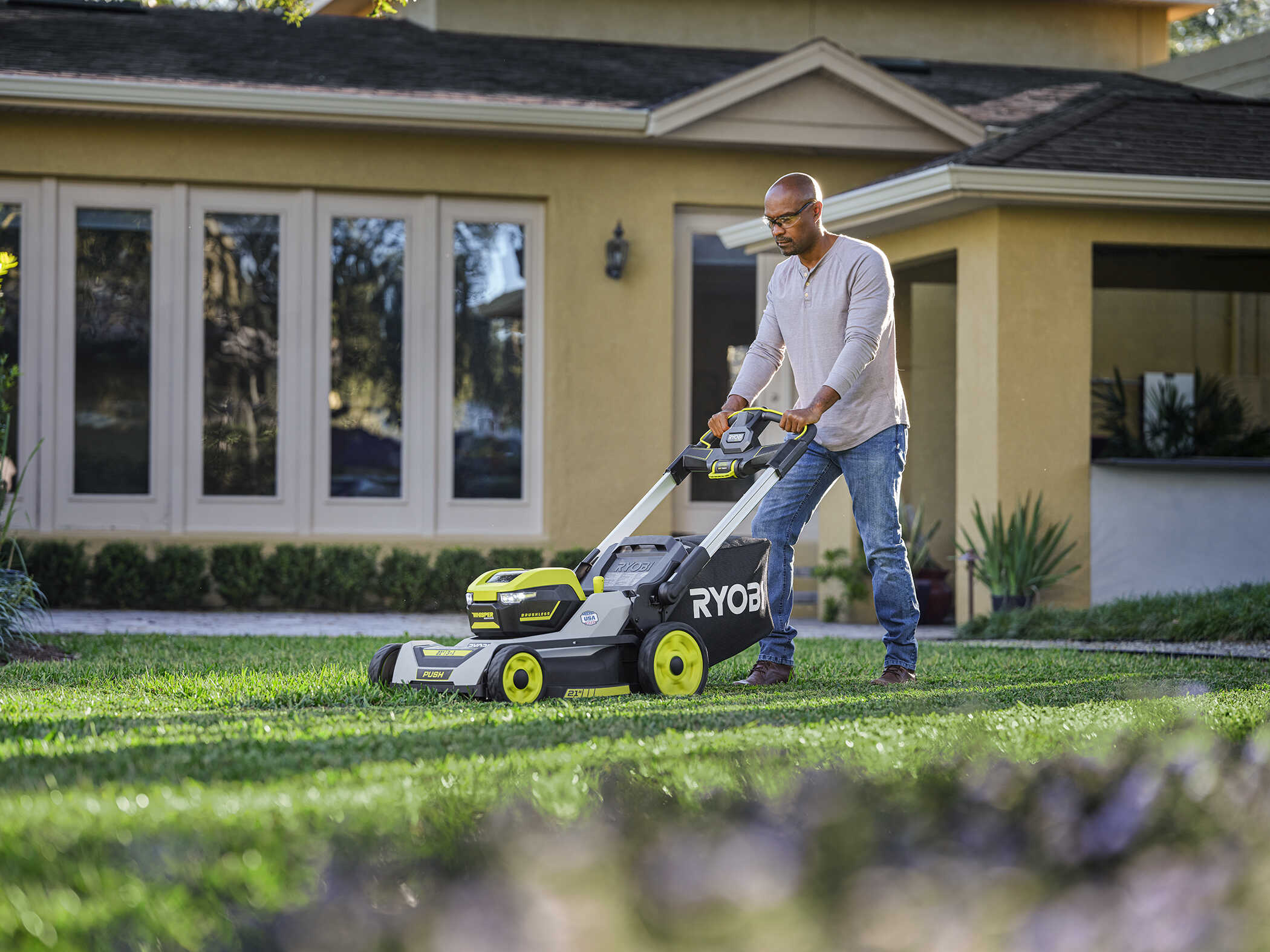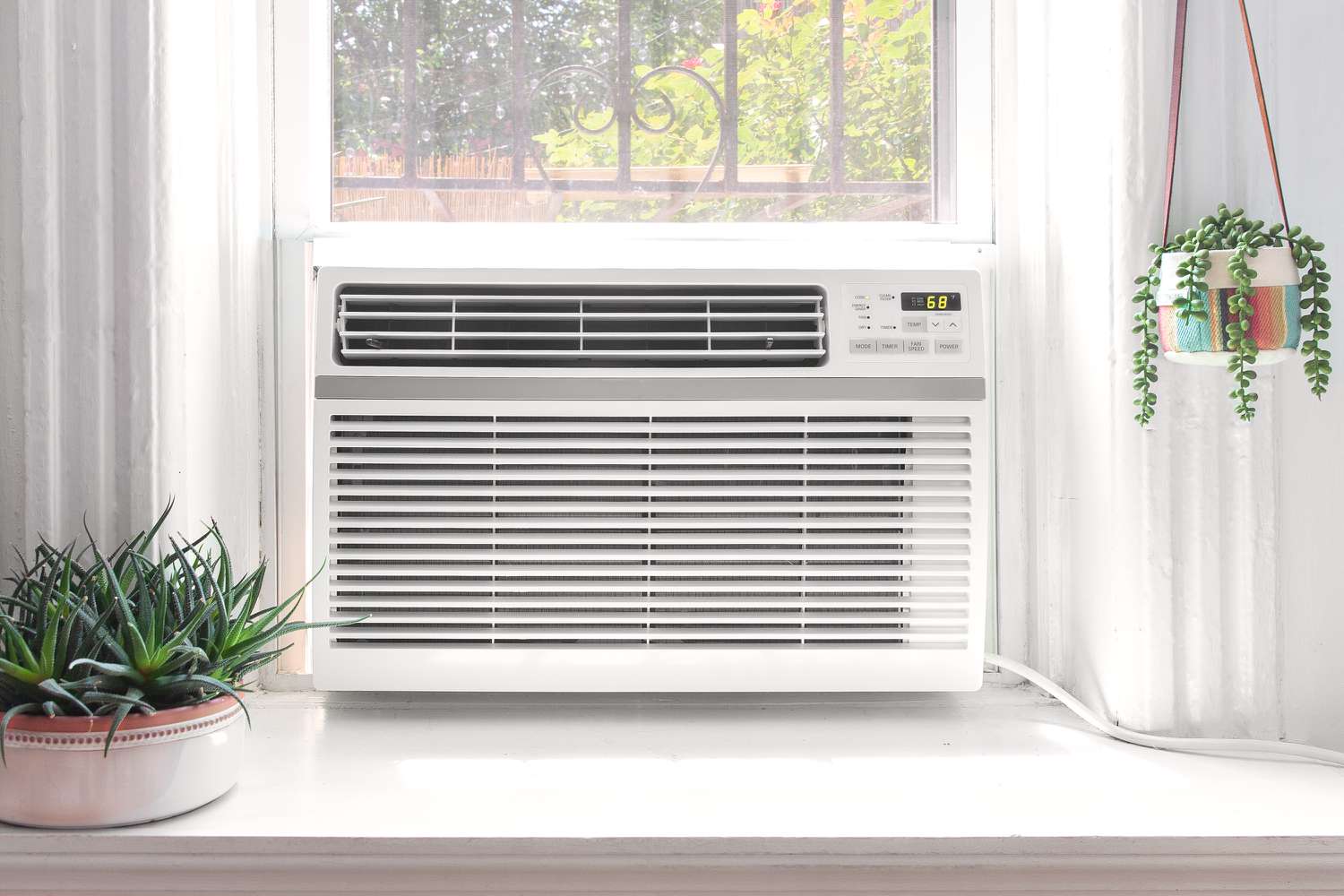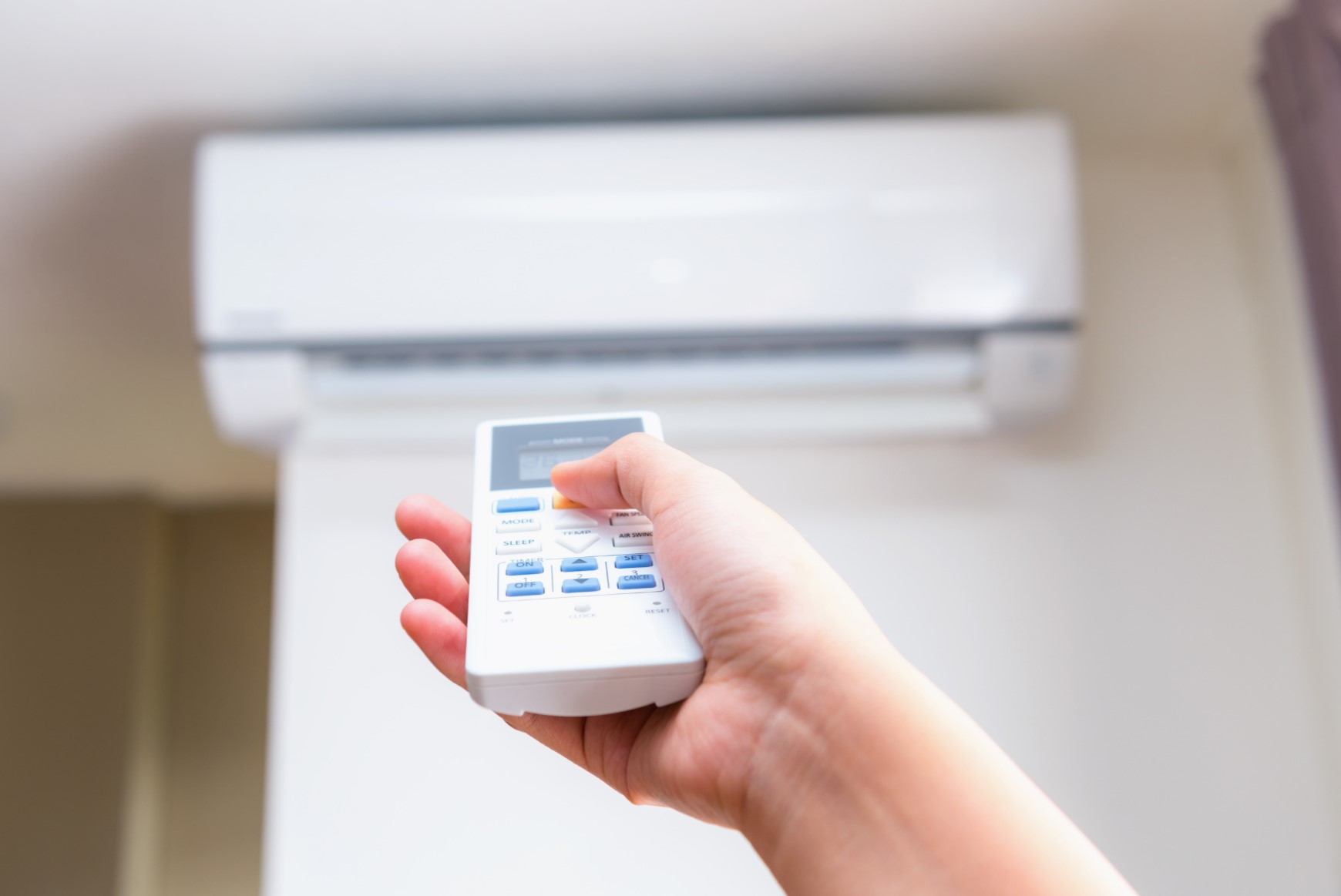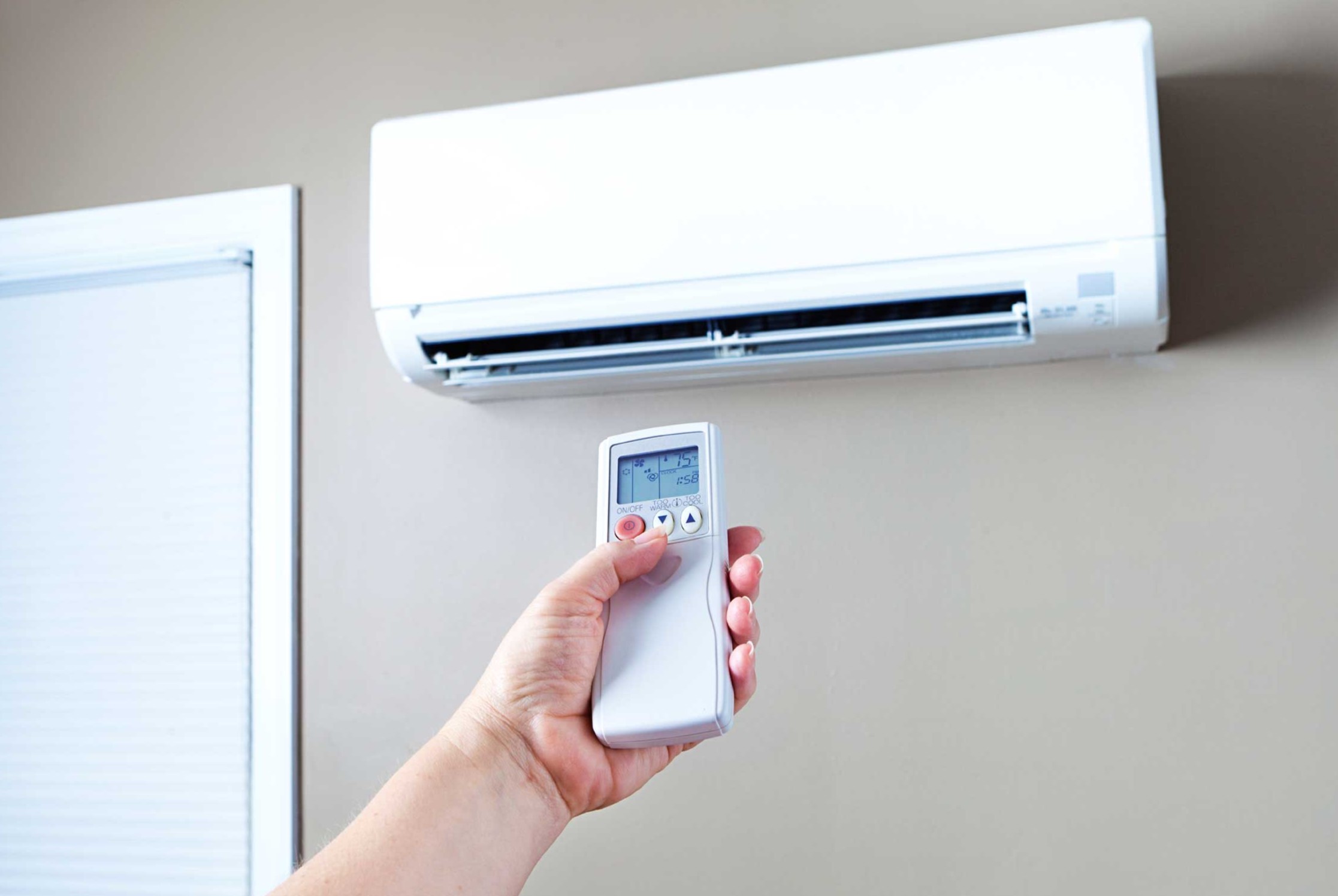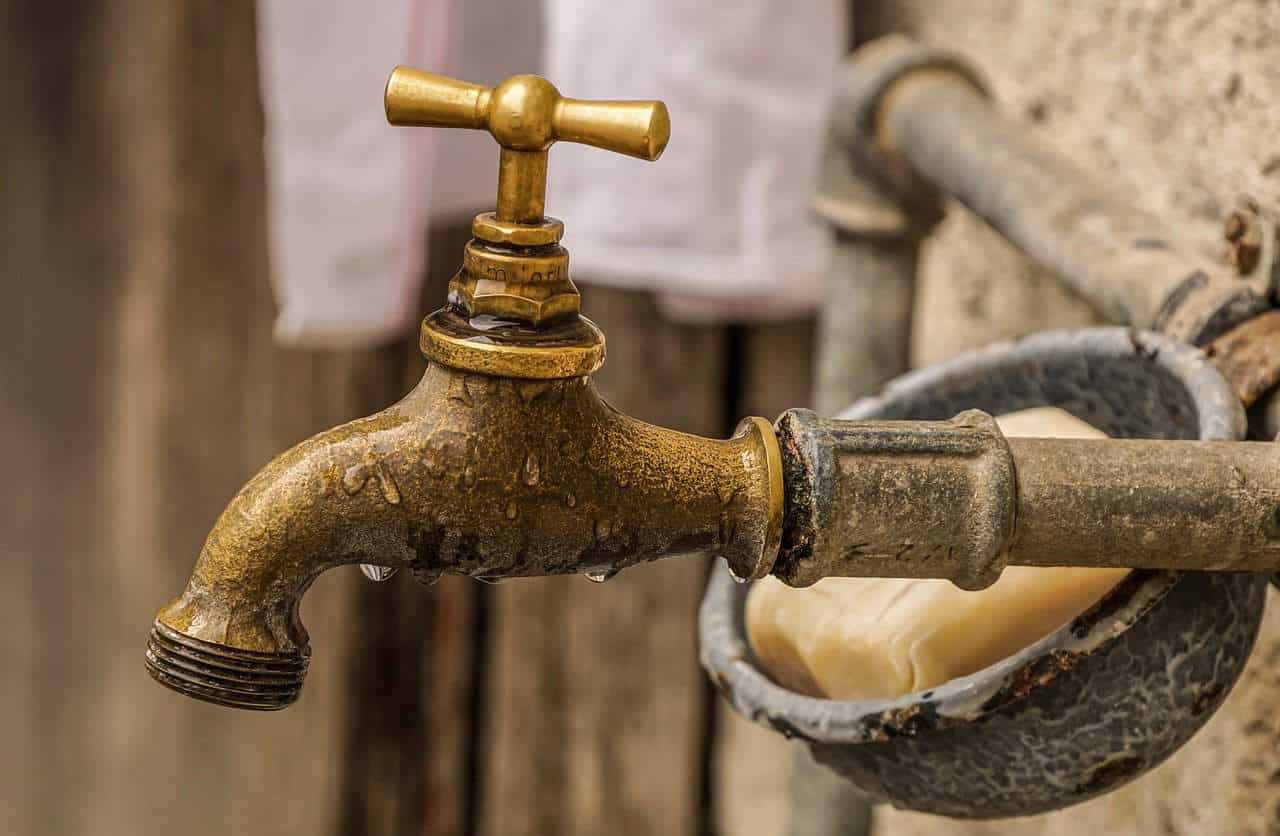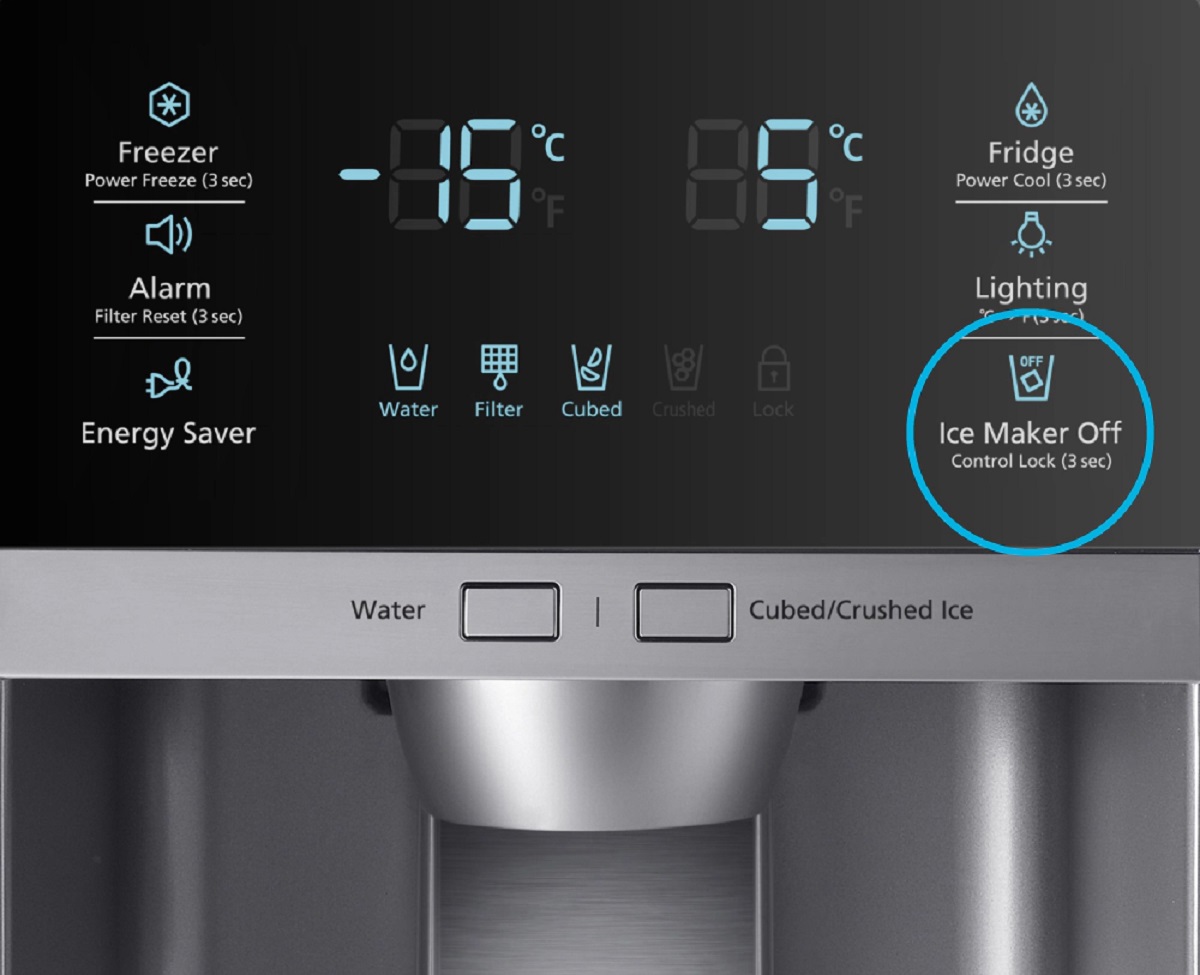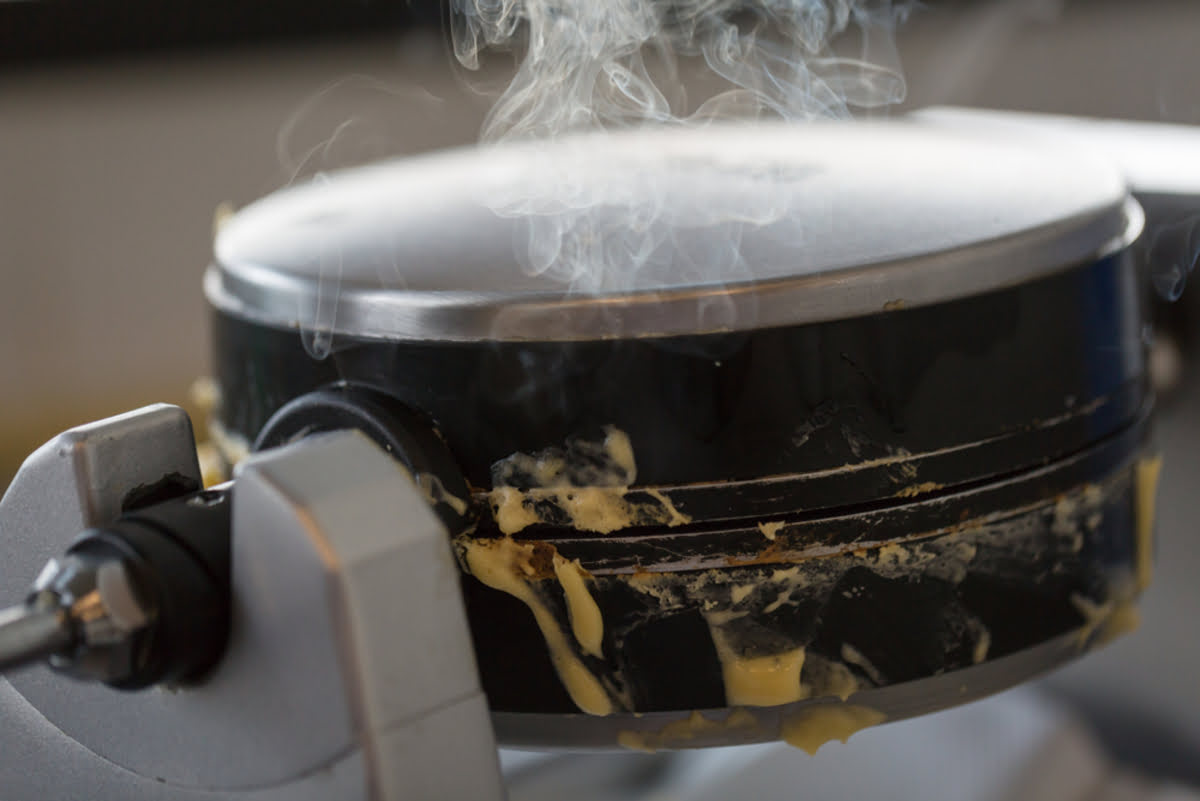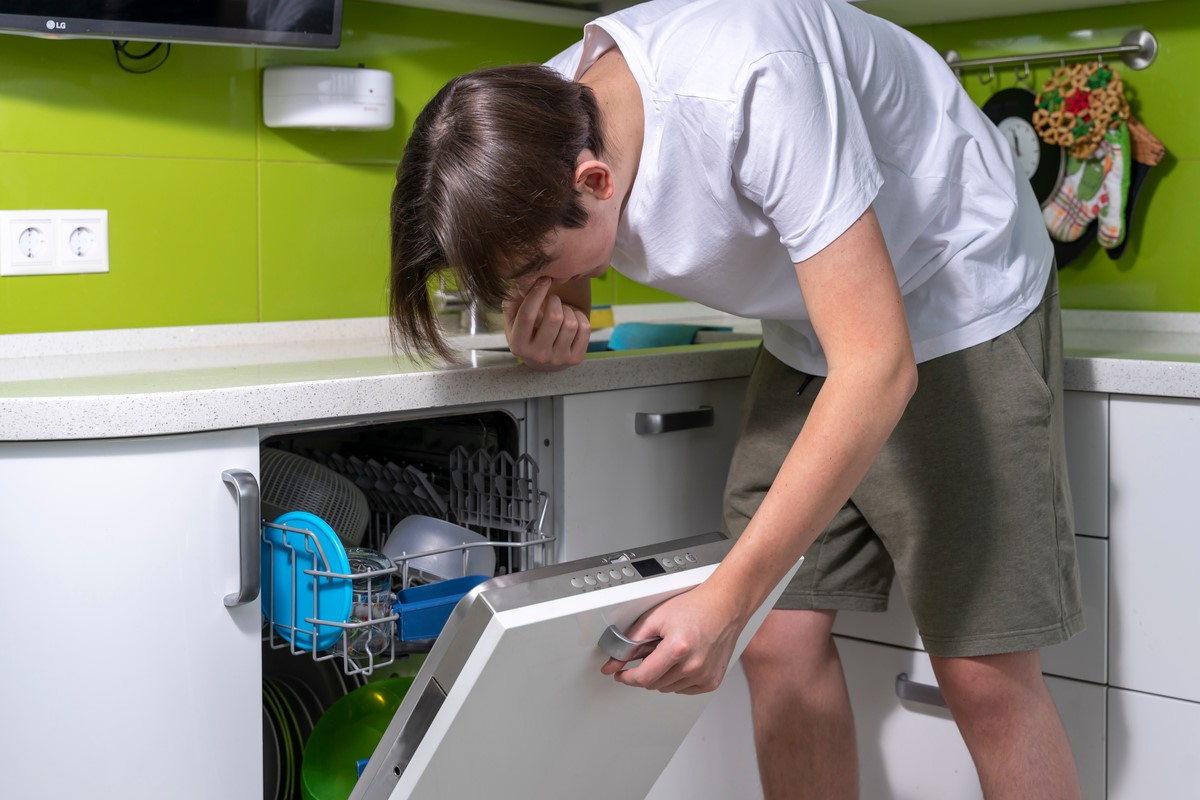Home>Home Maintenance>Air Conditioner Stinks When I Turn It On
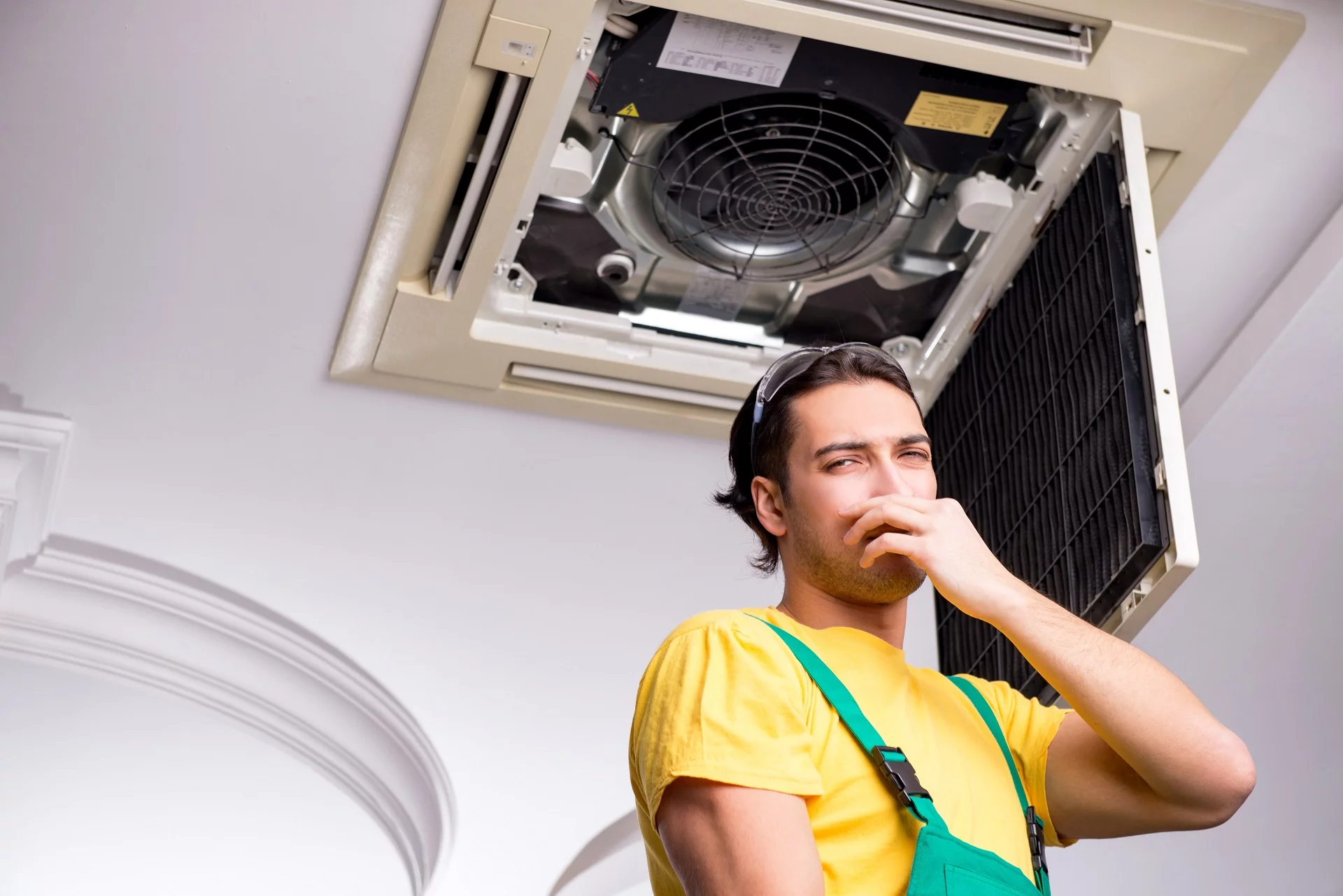

Home Maintenance
Air Conditioner Stinks When I Turn It On
Modified: March 21, 2024
Is your air conditioner emitting an unpleasant odor when you switch it on? Learn how to address this issue with effective home maintenance tips.
(Many of the links in this article redirect to a specific reviewed product. Your purchase of these products through affiliate links helps to generate commission for Storables.com, at no extra cost. Learn more)
Introduction
When the summer heat kicks in, there’s nothing quite as refreshing as stepping into a cool and comfortable home. However, that bliss can quickly turn into discomfort if your air conditioner emits an unpleasant odor when you turn it on. Not only can the odor be off-putting, but it may also be an indication of underlying issues that require attention. In this article, we will explore some common causes of air conditioner odor and provide solutions to eliminate it, ensuring your home stays fresh and comfortable throughout the summer months.
Experiencing a foul smell when you turn on your air conditioner can be a disconcerting experience, but it is essential to understand that it is not an uncommon problem. There are various factors that can contribute to this unpleasant odor, and identifying the root cause is crucial in finding an effective solution.
In the following sections, we will delve into some of the most common culprits of air conditioner odors and discuss the steps you can take to address them. From mold and mildew growth to clogged condensate drain lines, we will cover it all to ensure you have a clear understanding of how to tackle this recurring issue.
Key Takeaways:
- Regular cleaning and maintenance, including cleaning the evaporator coils and changing air filters, can eliminate air conditioner odors and ensure fresh, comfortable air in your home.
- Professional inspection and cleaning by HVAC technicians can effectively identify and address underlying issues, providing long-lasting solutions to eliminate persistent air conditioner odors.
Read more: When I Turn On My Air Conditioner, It Smells
Common Causes of Air Conditioner Odor
There are several potential causes for that unpleasant smell when you turn on your air conditioner. Understanding these common culprits will help you identify the source of the odor and take appropriate measures to eliminate it.
- Mold and Mildew Growth: One of the most common reasons for a foul odor is the presence of mold and mildew in your air conditioning system. These fungi thrive in dark, damp environments, such as the evaporator coils or the condensate drain pan. As moisture accumulates, mold and mildew develop, releasing an unpleasant smell when the air conditioner is turned on.
- Dirty Air Filters: Neglecting to clean or replace your air filters regularly can result in a buildup of dirt, dust, and other contaminants. When the air conditioner is running, these particles can circulate in the system and emit an odor. Additionally, the dirty filters restrict airflow, causing moisture to accumulate and creating an ideal environment for mold and mildew to grow.
- Clogged Condensate Drain Line: The condensate drain line is responsible for removing excess moisture from your air conditioning system. However, over time, it can become clogged with debris, algae, or mold, preventing proper drainage. This blockage can lead to water pooling and a musty odor emanating from the air conditioner.
- Dead Animals or Pests: Unfortunately, your air conditioning unit can become a perfect refuge for small animals or pests seeking shelter. If a critter finds its way into your system and ultimately meets its demise, it can create a strong, unpleasant odor that permeates throughout your home when the air conditioner is turned on.
- Chemical Odors: Sometimes, the odor coming from your air conditioner is not indicative of a malfunction or issue within the system. Certain chemicals, such as cleaning agents, paint fumes, or pesticides, can make their way into the air conditioning system’s intake, leading to the emission of unusual or unpleasant smells.
Identifying the specific cause of the air conditioner odor is crucial in determining the appropriate solution. In the next section, we will discuss some effective methods to eliminate these unpleasant smells and restore your air conditioner to its optimal functionality.
Mold and Mildew Growth
Mold and mildew growth is one of the most common causes of the unpleasant odor emanating from your air conditioner. When moisture builds up in the system, particularly on the evaporator coils or in the condensate drain pan, it creates an ideal environment for mold and mildew to thrive.
The presence of mold and mildew not only produces a foul smell but can also have adverse effects on your health. Breathing in mold spores can trigger respiratory problems, allergic reactions, and even lead to long-term health issues.
To eliminate the mold and mildew growth and the associated odor, follow these steps:
- Cleaning the Evaporator Coils: Start by turning off the power to the air conditioning system. Locate the evaporator coils, typically found inside the air handler unit. Gently clean the coils using a soft brush or a cloth dampened with a mixture of mild dish soap and warm water. Be careful not to bend or damage the delicate coils.
- Maintenance of the Condensate Drain Pan: Check the condensate drain pan for any signs of mold or mildew growth. If you spot any, remove the pan and clean it thoroughly using a mixture of bleach and water. This will help kill the mold and prevent it from recurring. Remember to wear gloves and protective eyewear when handling bleach.
- Using Mold Inhibitors: After cleaning, consider applying a mold inhibitor or treatment specifically designed for HVAC systems. These products can help prevent mold and mildew growth and keep your air conditioner odor-free.
Regular maintenance, including cleaning the evaporator coils and the condensate drain pan, is crucial to prevent mold and mildew growth. Additionally, it is essential to address any underlying issues that may be contributing to excess moisture accumulation, such as leaks or poor insulation. If you are unsure about how to properly clean or maintain your air conditioning system, it is recommended to seek professional help.
By effectively tackling the issue of mold and mildew growth, you can eliminate the unpleasant odor and ensure your air conditioner provides clean, fresh, and comfortable air for you and your family.
Dirty Air Filters
Dirty air filters can significantly impact the performance of your air conditioning system and contribute to an unpleasant odor. Over time, air filters accumulate dust, dirt, allergens, and other particles, which can impede airflow and hinder the efficient operation of your air conditioner.
When the air filters are clogged, not only does it affect the air quality in your home, but it can also lead to the emission of a musty or stale odor when the system is turned on. The particles trapped in the filters can create a breeding ground for bacteria, mold, and mildew, causing the unpleasant smell.
To address the issue of dirty air filters and eliminate the associated odor, follow these steps:
- Inspecting the Air Filters: Locate the air filters in your air conditioning system. They are typically situated in the return air duct or at the air handler unit. Remove the filters and visually inspect them for any signs of dirt, dust, or discoloration.
- Cleaning or Replacing the Air Filters: Depending on the state of the filters, you can either clean them or replace them entirely. If the filters are washable, follow the manufacturer’s instructions to clean them thoroughly. If they are disposable, it is recommended to replace them with new filters.
- Regular Maintenance: Moving forward, establish a regular maintenance schedule for your air filters. Depending on factors such as household size, pets, and environmental conditions, air filters should generally be cleaned or replaced every 1 to 3 months.
By ensuring clean air filters in your air conditioning system, you not only improve the air quality in your home but also eliminate the chances of an unpleasant odor. Remember that regular maintenance of air filters is crucial to prevent the accumulation of dirt and contaminants and optimize the performance of your air conditioner.
In addition to the steps mentioned above, it is recommended to have your air conditioning system inspected by a professional HVAC technician. They can assess the overall condition of your system, identify any issues, and provide specific recommendations for maintenance and improving indoor air quality.
By maintaining clean air filters and ensuring proper airflow, you can keep your home smelling fresh and enjoy the cool comfort of your air conditioner without any unwanted odors.
Clogged Condensate Drain Line
The condensate drain line in your air conditioning system plays a vital role in removing excess moisture. However, over time, this drain line can become clogged with debris, algae, or even mold, leading to water accumulation and an unpleasant odor when the air conditioner is turned on.
A clogged condensate drain line not only hampers the functionality of your air conditioner but also creates a breeding ground for bacteria, mold, and mildew. As the stagnant water sits in the drain line, it can produce a musty or foul smell that spreads throughout your home when the air conditioner is running.
To address a clogged condensate drain line and eliminate the associated odor, follow these steps:
- Locating the Condensate Drain Line: The condensate drain line is typically a PVC pipe that runs from the air handler unit to the outside of your home or into a floor drain.
- Inspecting and Unclogging the Drain Line: Begin by inspecting the drain line for any visible blockages. If you can see a clog near the opening of the drain line, carefully remove it using a wire brush or a pipe cleaner. For more severe clogs deeper in the line, you may need to use a wet/dry vacuum or seek professional assistance.
- Flushing the Drain Line: Once you have cleared any visible blockages, flush the drain line with a mixture of equal parts water and vinegar. This will help break down any remaining debris and disinfect the line. Pour the mixture into the drain line using a funnel or by connecting a hose to the opening.
- Preventing Future Clogs: To minimize the chances of future clogs, consider installing a condensate drain line trap or using a condensate drain line cleaning tablet. These preventive measures can help keep the drain line clear and prevent the accumulation of debris and growth of mold and algae.
Regularly checking and cleaning the condensate drain line is essential to ensure proper drainage and eliminate any unpleasant odors arising from a clog. If you are unsure of how to handle a clogged drain line or if the issue persists despite your efforts, it is best to consult with a professional HVAC technician.
By addressing a clogged condensate drain line and maintaining its proper functioning, you can eliminate the odor and prevent any potential water damage or mold growth associated with this issue.
Read more: When To Turn On The Air Conditioner
Dead Animals or Pests
Discovering an unpleasant smell coming from your air conditioner could be an indication of a more unusual cause – the presence of dead animals or pests within the system. Small creatures like rodents, birds, or insects may find their way into the air conditioning unit, seeking shelter and inadvertently meeting their demise.
The decomposition of these unfortunate intruders can lead to a strong, lingering odor that spreads throughout your home when the air conditioner is turned on. The smell can be particularly pungent if the animal or pest is trapped in an inaccessible area of the system, such as the ductwork or evaporator coils.
To address the issue of dead animals or pests in your air conditioning system and eliminate the associated odor, follow these steps:
- Locating the Source: Start by turning off the air conditioner and carefully inspecting the system for any signs of pests or dead animals. Look around the exterior unit, air vents, and air handler unit. If you are unable to locate the source yourself, consider contacting a professional pest control or HVAC technician for assistance.
- Removing the Deceased: If you are able to locate the dead animal or pest, use gloves and protective equipment to remove it safely. Place it in a sealed plastic bag and dispose of it properly according to local regulations. Avoid coming into direct contact with the deceased as it may carry diseases or parasites.
- Cleaning and Sanitizing: Once the pest or dead animal has been removed, thoroughly clean the affected area of the air conditioning system. Use disinfectant cleaners or a mixture of bleach and water to sanitize the area and eliminate any lingering odors.
- Preventing Future Infestations: To minimize the likelihood of pests or animals entering your air conditioning system, ensure that any access points, such as gaps or openings, are sealed off. Regularly inspect and maintain the area surrounding the exterior unit, including trimming vegetation and removing debris that may attract pests.
If you encounter difficulties in locating or removing the source of the odor, or if the odor persists even after cleaning, it is advisable to seek professional assistance. They will have the necessary expertise and equipment to handle the situation safely and effectively.
By addressing the issue of dead animals or pests and eliminating the associated odor, you can enjoy clean and fresh air from your air conditioning system without any unwanted smells.
Chemical Odors
While many air conditioner odors are associated with internal issues within the system, sometimes the odor may be a result of external factors, such as chemical odors. Chemicals from cleaning agents, paint fumes, pesticides, or even nearby construction projects can find their way into the air conditioning system’s intake, leading to the emission of unusual or unpleasant smells when the air conditioner is turned on.
If you notice a chemical odor coming from your air conditioner, it is important to identify and address the source. Here are some steps you can take:
- Identify the Source: Try to determine the origin of the chemical odor. Are there any recent changes in the environment or nearby activities that may be causing the smell? Consider if any cleaning products, paints, or other chemicals have been used in the vicinity of the air conditioning system.
- Ventilate the Area: Open windows and doors to allow fresh air to circulate and help disperse the chemical odor. Use fans or natural airflow to promote ventilation and reduce the concentration of the smell.
- Clean the Air Filters: If the chemical odor persists, it is advisable to check and clean or replace the air filters. The filters may have trapped particles related to the chemical odor, and cleaning or replacing them can help improve the air quality and reduce the smell.
- Avoid Strong Chemical Use: During periods when you are experiencing chemical odors, try to minimize the use of strong cleaning agents or chemicals in the vicinity of the air conditioning system. Opt for more neutral or natural cleaning solutions to reduce the chance of any lingering smells being drawn into the intake.
- Consult Professionals: If the chemical odor persists or if you are concerned about the potential health impacts of the smell, it is advisable to consult with professionals. They can assess the situation, help identify the source of the odor, and provide appropriate recommendations for remediation.
Addressing chemical odors may require a combination of preventive measures and environmental awareness. By being mindful of the substances used around the air conditioning system and promptly addressing any chemical odors, you can ensure a more pleasant and healthier indoor environment.
To get rid of the stinky smell when you turn on your air conditioner, try changing the air filter and cleaning the evaporator coil. This can help eliminate any built-up dirt and mold causing the odor.
Solutions to Eliminate Air Conditioner Odor
Experiencing an unpleasant odor when you turn on your air conditioner can be unsettling. But fear not! There are several effective solutions available to help eliminate the odor and restore your air conditioning system to its optimal condition. Here are some steps you can take:
- Regular Cleaning and Maintenance: Routine cleaning and maintenance are crucial in preventing and addressing air conditioner odor. Clean the evaporator coils, condensate drain pan, and other accessible components to remove dirt, dust, and debris that may contribute to the unpleasant smell. Consider scheduling professional maintenance at least once a year to ensure a thorough cleaning and inspection of your entire system.
- Changing Air Filters: Dirty air filters can impede airflow and contribute to the emission of odors. Regularly check and clean or replace your air filters every 1 to 3 months to maintain proper airflow and prevent the accumulation of particles that can cause unpleasant smells.
- Cleaning the Condensate Drain Line: A clogged condensate drain line can result in water pooling and the growth of mold and mildew, leading to a musty odor. Regularly inspect and clean the drain line to ensure proper drainage and prevent any blockages. Flushing the drain line with a mixture of water and vinegar can help remove debris and disinfect the line.
- Addressing Dead Animals or Pests: If you suspect that the odor is caused by the presence of dead animals or pests within your air conditioning system, locate and remove the source. Clean and sanitize the affected area to eliminate any lingering smell. Take preventative measures to minimize the chances of future infestations.
- Identifying and Eliminating Chemical Odors: Chemical odors can be a result of external factors. Identify the source of the chemical odor and take appropriate measures to address it. Proper ventilation, cleaning or replacing air filters, and avoiding strong chemical use in the vicinity of the air conditioning system can help reduce and eliminate the smell.
Remember, if you are unsure how to address the air conditioner odor or if the smell persists despite your efforts, it is advisable to consult with a professional HVAC technician. They can offer expert guidance, identify any underlying issues, and provide targeted solutions to eliminate the odor.
By implementing these solutions and maintaining a regular cleaning and maintenance routine, you can ensure that your air conditioning system operates efficiently, provides clean and fresh air, and eliminates any unwanted odors in your home.
Regular Cleaning and Maintenance
Regular cleaning and maintenance of your air conditioning system are essential not only for its proper functioning but also for eliminating any potential sources of odor. By incorporating a routine cleaning and maintenance schedule, you can prevent the buildup of dirt, dust, and contaminants that can contribute to unpleasant smells. Here’s what you need to know about regular cleaning and maintenance:
Cleaning the Evaporator Coils: The evaporator coils in your air conditioning system play a crucial role in cooling the air. However, over time, these coils can accumulate dirt, dust, and even mold or mildew. Regularly cleaning the evaporator coils helps maintain their efficiency and prevents the growth of odor-causing microorganisms. Use a soft brush or a cloth dampened with a mixture of mild dish soap and warm water to gently clean the coils, being careful not to damage them.
Clearing Debris: It’s important to periodically check and clear any debris, such as leaves, twigs, or grass clippings, from the air conditioning unit, especially if it is located outdoors. Debris can obstruct airflow and lead to the accumulation of moisture and odors. Use a brush or a vacuum cleaner with a soft brush attachment to remove any debris from the unit’s exterior and surrounding area.
Inspecting and Cleaning Air Vents and Ducts: Air vents and ductwork can accumulate dust and allergens, which can contribute to a stale or musty odor when the system is running. Regularly inspect and clean the air vents using a vacuum cleaner or a damp cloth. If you suspect that the ductwork is contaminated, consider hiring a professional duct cleaning service to thoroughly clean and sanitize the ducts.
Checking for Leaks and Insulation Issues: Inspect your air conditioning system for any signs of leaks or insulation problems. Moisture from leaks can lead to mold growth and the emission of odors. Ensure that all connections are secure, and if you notice any leaks, have them repaired promptly by a professional technician. Additionally, check the insulation around the ductwork to ensure it is intact and properly sealed, preventing the infiltration of outside contaminants and odors.
Professional Inspection and Maintenance: While regular cleaning and maintenance can go a long way in preventing odor issues, it’s always a good idea to have a professional HVAC technician inspect your air conditioning system annually or as recommended by the manufacturer. They can identify any potential problems, perform a thorough cleaning, and optimize the system’s performance.
Regular cleaning and maintenance not only eliminate potential sources of odor but also improve the overall efficiency and lifespan of your air conditioning system. By incorporating these practices into your household routine, you can enjoy clean and fresh air, free from any unwanted odors, throughout the year.
Read more: When To Turn Off The Air Conditioner
Changing Air Filters
Regularly changing your air filters is an essential maintenance task that can significantly impact the air quality in your home and help eliminate unwanted odors. Air filters are designed to capture dust, dirt, allergens, and other airborne particles, preventing them from circulating through your air conditioning system.
Over time, air filters become dirty and clogged with accumulated debris. When the filters are dirty, they not only impede the airflow but also allow trapped particles to degrade, leading to an unpleasant odor when the air conditioner is turned on. Changing your air filters is a simple and effective solution to address this issue.
Here’s how you can change your air filters:
- Determine the Type of Filter: Different air conditioning systems require specific types and sizes of air filters. Identify the correct filter size and ensure that you purchase a replacement filter that matches these specifications. Refer to the manufacturer’s instructions or consult with a professional if you’re unsure.
- Locate the Air Filters: Air filters are typically located in the return air vent or within the air handler unit. Check your system’s manual or follow the ductwork to locate the air filters.
- Turn Off the System: Before removing the old filter and installing the new one, ensure that the air conditioning system is turned off to prevent any potential damage or debris from circulating through the system.
- Remove the Old Filter: Slide out the old filter from its housing carefully. Take note of how the filter is positioned to ensure that you insert the new filter correctly.
- Insert the New Filter: Insert the new filter into the housing, making sure it’s in the right position. Follow any directional arrows or markings on the filter that indicate the proper airflow direction.
- Dispose of the Old Filter: Properly dispose of the old filter in a sealed plastic bag to contain any dust or debris. Check local regulations for the correct way to dispose of air filters.
- Establish a Replacement Schedule: Establish a regular replacement schedule for your air filters. Factors such as household size, pets, and environmental conditions can impact the frequency at which filters should be changed. As a general guideline, plan to check and replace the filters every 1 to 3 months.
Changing your air filters not only helps improve the air quality in your home but also ensures efficient airflow and can help eliminate odors associated with dirty filters. Regular maintenance of your air filters is a simple yet effective way to keep your air conditioning system operating at its best.
If you have reusable filters, consult the manufacturer’s instructions on how to clean and maintain them properly. Additionally, consider consulting with a professional HVAC technician for guidance and recommendations specific to your air conditioning system.
Cleaning the Condensate Drain Line
The condensate drain line plays a crucial role in removing excess moisture from your air conditioning system. Over time, however, this drain line can become clogged with debris, algae, or even mold, causing water to pool and creating an unpleasant odor when the air conditioner is turned on. Cleaning the condensate drain line is an essential maintenance task that can help eliminate this issue.
Here’s how you can clean the condensate drain line:
- Locate the Condensate Drain Line: The condensate drain line is usually a PVC pipe located near the indoor air handler unit. It may drain outside your home or into a floor drain.
- Turn Off the Air Conditioner: Before beginning the cleaning process, turn off the air conditioner completely. This step ensures your safety and prevents any interference with the cleaning process.
- Remove the Access Cap or Plug: The condensate drain line may have an access cap or plug that allows you to access the line for cleaning. Remove the cap or plug using a wrench or by hand, depending on the type of fitting.
- Flush the Line: To clean the line, you can use a mixture of equal parts water and vinegar or a specially formulated drain line cleaner. Pour the mixture into the condensate drain line using a funnel or by connecting a hose to the opening. This solution will help dislodge accumulated debris, breakdown algae or mold, and sanitize the line.
- Wait and Flush Again: Allow the cleaning solution to sit in the line for about 30 minutes, or follow the instructions on the drain line cleaner you are using. Then, flush the line with clean water to remove any loosened debris and ensure it is clear.
- Replace the Access Cap or Plug: Once the line is clean and clear, replace the access cap or plug securely.
- Preventing Future Clogs: To minimize the chances of future clogs, consider using a condensate drain line treatment or installing a condensate drain line trap. These preventive measures help prevent the growth of algae or mold and keep the drain line flowing freely.
Regularly cleaning the condensate drain line is essential in maintaining proper drainage and preventing the accumulation of water and odor-causing debris. It is recommended to incorporate this task into your regular air conditioning maintenance routine, ideally once or twice a year, or more frequently if you notice any signs of clogging or water leakage.
If you are unsure about how to clean the condensate drain line or if the clog persists even after your efforts, it is advisable to seek assistance from a professional HVAC technician. They can provide expert guidance, perform a thorough cleaning, and address any underlying issues that may be contributing to the clog.
By keeping the condensate drain line clean and clear, you can ensure proper drainage, prevent water damage, and eliminate any associated odors, allowing your air conditioner to operate efficiently and effectively.
Professional Inspection and Cleaning
While regular cleaning and maintenance are crucial for keeping your air conditioning system in good condition, there are instances where a professional inspection and cleaning are necessary. Professional HVAC technicians have the expertise and specialized tools to perform a thorough assessment of your system, identify any underlying issues, and provide targeted solutions to eliminate odors.
Here’s why professional inspection and cleaning are essential:
In-Depth System Evaluation: A professional technician can conduct a comprehensive evaluation of your air conditioning system. They will assess various components, such as the evaporator coils, condensate drain line, ductwork, and electrical connections, to identify any potential sources of odors. Their expertise and diagnostic tools allow them to pinpoint issues that may be challenging to detect on your own.
Thorough Cleaning and Sanitization: HVAC professionals have the knowledge and equipment to perform a deep cleaning of your air conditioning system. They will clean and sanitize the evaporator coils, condensate drain pan, air ducts, and other vital components. This thorough cleaning eliminates accumulated dirt, dust, mold, and other contaminants that may contribute to odors.
Professional-Grade Treatment: HVAC technicians have access to professional-grade treatments and cleaning solutions that are more effective in eliminating persistent odors. These treatments can help kill mold, mildew, or bacteria that may be present in your system. By using specialized products, they can ensure a more thorough and long-lasting odor removal.
Identification and Repair of Issues: During the inspection, a professional technician can identify any underlying issues, such as refrigerant leaks, electrical problems, or malfunctioning components, which may be causing or contributing to the odor. They can provide the necessary repairs or replacements to address these issues and prevent further problems down the line.
Expert Recommendations: As HVAC experts, technicians can offer valuable advice and recommendations on how to improve the overall performance and efficiency of your air conditioning system. They can suggest preventive measures, such as upgrading filters, improving insulation, or enhancing ventilation, to keep your system running optimally and minimize the chances of odors in the future.
Professional inspection and cleaning are particularly beneficial if you have persistent or recurring odors that you cannot resolve on your own. It is recommended to schedule a professional inspection at least once a year or as recommended by the manufacturer. Additionally, if you notice any issues or unusual odors, contacting a professional technician promptly can help prevent further damage and ensure a safe and healthy indoor environment.
By investing in professional inspection and cleaning, you can address any underlying problems, eliminate odors effectively, and extend the lifespan of your air conditioning system, providing you with clean and fresh air for years to come.
Conclusion
An unpleasant odor coming from your air conditioner can disrupt the comfort and freshness of your home. However, by understanding the common causes of air conditioner odor and implementing appropriate solutions, you can eliminate the smell and restore a pleasant indoor environment.
From mold and mildew growth to dirty air filters, clogged condensate drain lines, dead animals or pests, and even chemical odors, there are various factors that can contribute to the odor. Regular cleaning and maintenance, including cleaning the evaporator coils, changing air filters, and cleaning the condensate drain line, are key in preventing and addressing these odor-causing issues.
When necessary, it is advisable to seek professional assistance. HVAC technicians can perform a thorough inspection, provide deep cleaning and sanitization, and identify any underlying issues that require attention. Their expertise and specialized tools ensure a comprehensive approach to eliminating odors and optimizing the performance of your air conditioning system.
Remember, prevention is always better than cure. By incorporating regular cleaning, maintenance, and professional inspections into your air conditioning routine, you can minimize the chances of odors arising and maintain a clean and fresh indoor environment.
With these solutions in mind, you can take proactive steps to eliminate air conditioner odors, ensuring that your home remains a comfortable and pleasant sanctuary during the hot summer months. Stay proactive, follow the recommended maintenance practices, and don’t hesitate to reach out to professionals when needed. Enjoy the cool and refreshing air without any unwanted odors!
Frequently Asked Questions about Air Conditioner Stinks When I Turn It On
Was this page helpful?
At Storables.com, we guarantee accurate and reliable information. Our content, validated by Expert Board Contributors, is crafted following stringent Editorial Policies. We're committed to providing you with well-researched, expert-backed insights for all your informational needs.

